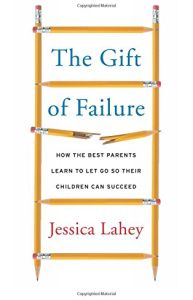Join getAbstract to access the summary!

Join getAbstract to access the summary!
Jessica Lahey
The Gift of Failure
How the Best Parents Learn to Let Go So Their Children Can Succeed
William Morrow, 2015
What's inside?
Set your kids on the path to resilience and autonomy.
Recommendation
Many people believe that good parents manage their children’s lives, shield them from difficulties, intervene when things get tough at school or on the playing field, protect them from schoolyard bullies, and keep them from failing. But preventing kids from falling, smoothing over obstacles and rescuing them from the consequences of their mistakes denies them the experience they need to internalize lessons about resourcefulness, social competence and resilience. Parenting expert Jessica Lahey recommends “parenting for autonomy,” which means raising resilient children who grow into confident, competent adults. getAbstract recommends her insightful information to adolescents, parents and teachers.
Summary
About the Author
Jessica Lahey is a teacher in New Hampshire, a columnist for The New York Times, and a speaker on parenting and education.

















Comment on this summary